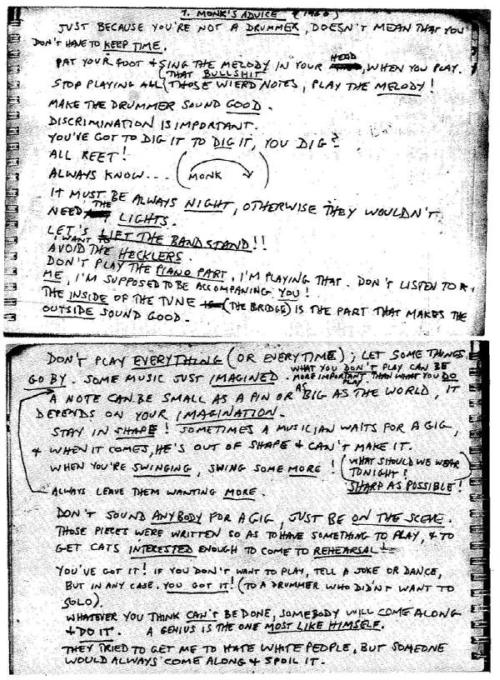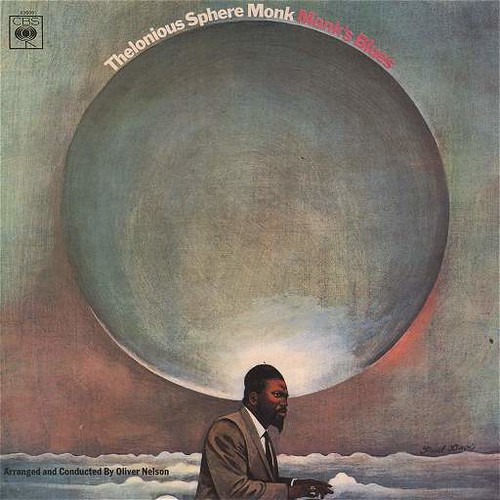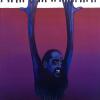-
Posts
833 -
Joined
-
Last visited
-
Donations
0.00 USD
Content Type
Profiles
Forums
Events
Blogs
Posts posted by blajay
-
-
Some of you have probably already seen this, and it has nothing to do directly with the Kelley book, but thought it might be of interest. Some notes of advice Monk wrote to Steve Lacy. Beyond that, the thread at AAJ doesn't really offer much further insight about where it came from.

Thomas Pynchon cribs from this in the epigraph to Against the Day though he makes it a bit more poetic: "It's always night or they wouldn't need light.-- Thelonious Monk"
I believe Kelley, himself, actually quotes it in his book Freedom Dreams, too, talking about surrealism.
It’s always night or we wouldn’t need light....It is no surprise that Thelonious Monk turned out to be one of the surrealists’ major heroes. Monk’s music appealed especially to the surrealists’ struggle for complete freedom and the overthrow of bourgeois concepts of beauty and art. He made music that destroyed many Western ideas about music making, turning conventional rules of composition, harmony, and rhythm on their heads. He stripped romantic ballads of their romanticism and took his listeners on wild harmonic rides filled with surprising dissonances… (Kelley, Freedom Dreams p. 157-162)
-
Some of you have probably already seen this, and it has nothing to do directly with the Kelley book, but thought it might be of interest. Some notes of advice Monk wrote to Steve Lacy. Beyond that, the thread at AAJ doesn't really offer much further insight about where it came from.

Thomas Pynchon cribs from this in the epigraph to Against the Day though he makes it a bit more poetic: "It's always night or they wouldn't need light.-- Thelonious Monk"
I believe Kelley, himself, actually quotes it in his book Freedom Dreams, too, talking about surrealism.
-
on ebay theres this white label 6 eye Miles ahead promo w/ this diff. cover ive never seen before: some chick on a sailboat. why was this cover changed to the familar yellow pic of miles?
I have that. AFAIK, Miles didn't want a white lady on his album cover anymore.
-
Kelley's reading at City Lights Bookstore last night
was a pretty inspiring experience for me. As I've indicated, I have thoroughly enjoyed the book, and the explanations that he provided yesterday enhanced the whole experience. Besides having the privilege to hear some of the revealing music from the home tapes that Nellie and Nica kept (including a Christmas carol), it was a pleasure just to listen to tunes like "Little Rootie Tootie." I listen to those Prestige recordings for many mornings on my bus commute through headphones, but it was a more powerful experience to hear it in a room filled with so much concentrated love for Monk. He emphasized Monk's honest struggle to make it with a hit, his dedication to his family, his often loquaciousness and punctuality despite having been characterized only as an eccentric loner that doesn't adhere to society's rules, among many other things. In the Q&A session he told use more about the treatment of Monk by the different record labels and about Monk's music as a form of literature. I then asked to hear more about Herbie Nichols, the writer, and he gave a great overview. I was able to chat with Kelley briefly afterward, too, which was a real honor. It was a lovely evening.
-
I really think the world of Tommy Flanagan, but I don't think his album Thelonica does it. Hope nobody tears me a new one over this. I much prefer other albums like Let's (his tribute to Thad Jones) and Beyond the Bluebird (with Kenny Burrell).
I definitely won't tear you a new one, but I really love that album. Flanagan's performance of the tune "Light Blue" just hits me deep, in particular. Especially during hard times I've had. Thanks to Kelley's book, now I know why: it was written by Monk when he was struggling with depression after hospitalization.
-
I love Al and Zoot, but find their Hoagy Carmichael album limp. Fortunately, in its present incarnation on Lonehill it's paired with Either Way, which is a gas. (I have no objection to the singing of Cecil "Kid Haffey" Collier, by the way.)
After Miles Ahead, Porgy and Bess and Sketches of Spain, it's generally recognized that Miles and Gil produced a clunker in Quiet Nights.
Quiet Nights should not have been released at the time in the form it was. It was not finished, maybe it was never intended to be finished, but that was not the album that Miles and Gil wanted us to hear. In my opinion if it's a clunker, it is a clunker produced by Teo Macerio, not Miles and Gil.
And despite that I like it. It has brilliant moments!
Just like Monk's Blues (above). Seems to be a pattern.
-
At a reading last night at City Lights Bookstore, I believe I remember Robin Kelley speaking pejoratively about this album, as an example of the negative effects of Columbia trying to sell Monk.
I really wanted to go to that but couldn't. Did you enjoy it? I will buy the book this weekend.
Always avoided that album, still no desire to try it.
I thoroughly enjoyed it. I'll post a synopsis in the thread on his book, when I get a chance.
-

This album would have worked with either a different arranger or a different pianist.
At a reading last night at City Lights Bookstore, I believe I remember Robin Kelley speaking pejoratively about this album, as an example of the negative effects of Columbia trying to sell Monk.
-

"The Horos.....the Horos......"
Hilarious!

-
Great news! Thanks for passing this along.
-
Bobby Orr - Drums.
Nice reflections. I had no idea Bobby Orr played drums.

-
or maybe not enough....
I'm all for intellectual curiosity about and exploration into... the process - of making music - composing, improvising, what have you.
But as far as what Monk had for breakfast that morning, no thank you. One of my greatest pleasures in life is discussing scale and chord choices with Barry Harris.
This is all off topic of the book itself, which I haven't read yet, so pardon the intrusion.
Well, I definitely think you'd find far more meaning in this book than information about Monk's meals. For pretty much every composition that Monk recorded, and even the ones he didn't, Kelley tells us the story behind its genesis. This includes scale and chord choices, as well as title names, etc.
-
wanting to know about the life is basic intellectual curiosity. And to me, the life supplements the music - I find the life and the music largely inseparable, and though I believe the art can and always will stand by itself, regardless of the personal details, jazz and other forms of vernacular music have a strong relationship to those details. The picture gets clearer with the details; for me it's also vocational in a weird way. If you want to play or write about this stuff, the life of others like Monk, however it plays out, clarifies your own, even by contrast.
knowing what Monk did, what he said, where he went, how he reacted to everything, is extremely educational, in the deepest sense, too. This stuff happens as a strange coincidence of people and events - I want to know what those were.
Well said, Allen. You have wonderful insights like these; please try not to get too emotionally impacted by the prevailing power-discourse of your internet groups. The actual discussion is much more interesting.
-
About his Prestige side that included "Monk's Dream," "Bye-ya," "Little Rootie Tootie," and "Playhouse," Kelley describes Monk as feeling alive again: "All four songs were recorded in one take, and his solfeggio singing at times threatened to overwhelm the music. Monk expresses pure joy as he sings out his ideas.(Kelley, 160)."
It's true that he's singing out his ideas, and perhaps that's the essence of solfeggio. But it is so much more than what that term means, when I listen to these tunes, no?
-
Is there a difference between solfeggio and grunting?
Can Larry or someone clear this up? Just curious because Kelley seems to use the term for any vocal noise that Monk produces while playing. The term seems funny to me, though. I imagine Monk singing "fa so la ti..." over his compositions.
That's exactly what it is (do re mi etc). Sounds like Kelley's being ironic, or rather serious-joking.
Yeah, that's what I thought, but I don't think he's being ironic in the context. A number of times he wrote, "Monk's solfeggio was particularly loud that day, indicating how good of a mood he was in," (I'm paraphrasing), but when I listen to the recording he refers to, I just hear grunting. Of course, loud grunting could say something about his state of mind, or at least his enthusiasm that day for his performance, but is that solfeggio?
I'm not trying to nitpick, and I LOVE this book, but I was just confused by this.
-
Is there a difference between solfeggio and grunting?
Can Larry or someone clear this up? Just curious because Kelley seems to use the term for any vocal noise that Monk produces while playing. The term seems funny to me, though. I imagine Monk singing "fa so la ti..." over his compositions.
-
A criticism of Charles Lloyd and moldy figs.
To me, Ran Blake is Ran Blake, not standing in for any greater aesthetic problem or solution.
I agree. I meant to employ Baraka's criticism to the idea of a "freedom argument."
I love Ran Blake's music. I need to spin Blue Potato & Other Outrages again--it's been too long since I listened to Blake. In fact, I have that duet album with Jaki Byard, and I think I only gave it one listen a year ago. Gotta get on that. Too little time.
-
-
-
For Down Beat on July, 16, 1966, Amiri Baraka put this in perspective for me, (unclear who he's quoting to me):
"This last item, is a found object:
Owner and Slave
If there were more Woody Hermans
and fewer or no Archie Shepps, the state
of Jazz would be much healthier
--Dave Yost
Spokane, Washington
'We try to use all components of music,' Lloyd explained.
'Chordal composition and improvisation are not finished, nor is complete freedom the answer.'
here are some of the idiots floating around America"
Totally not calling anyone on this board an idiot, at all. I thought this was hilarious and brilliant, though. When people start to argue that we shouldn't be completely free, they've got to think about what they're arguing.
-
Is there a difference between solfeggio and grunting?
Also, I didn't know that Herbie Nichols was a writer. Very cool.
-
"Asperger's syndrome is a pervasive developmental disorder, or autistic spectrum disorder, recognizable by the lack of social skills and the often highly intellectual, perseverative interests developed by those with Asperger's. "
Whom are you quoting?
-
-
Just curious, which album, Clifford?
because it sounds like one worth caring for.
_forumlogo.png.a607ef20a6e0c299ab2aa6443aa1f32e.png)


New Monk bio in progress by Robin Kelley
in Jazz In Print - Periodicals, Books, Newspapers, etc...
Posted
The context in which we listened to "Little Rootie Tootie" the other night at Kelley's reading was set when he asked us to imagine as if we were Hall Overton, with Monk telling us to just play the record every time we ask Monk about the music to arrange it for their big band concert. Then Kelley played it. I guess I paid more attention than when I normally listen to it on my own, but I was quite taken by it. Since then I've been listening to "Little Rootie Tootie" over and over with the Riverside Town Hall recordings after the Prestige one. It's fun to hear the differences (and the similarities) of those performances because of the differing ensembles. Great tune!